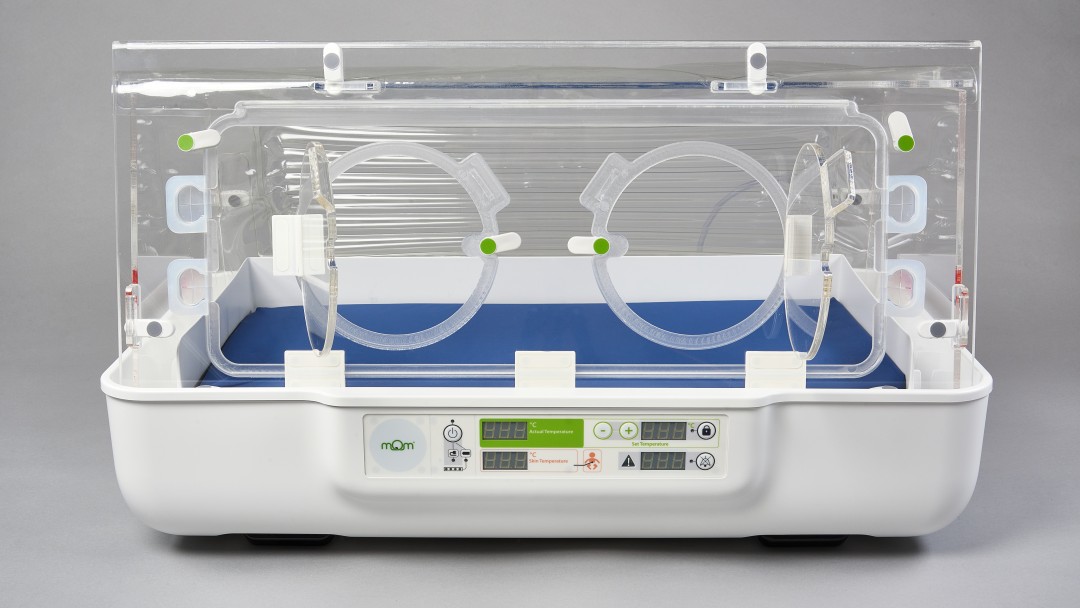Tip: Activate javascript to be able to use all functions of our website

Investment funds with a social focus, so-called impact funds, have proven themselves as instruments of development cooperation. They are also interesting for private investors because the public side bears the higher default risk. In this way, limited public funds can be leveraged.
For some years now, such funds have also been used successfully in the healthcare sector: they invest in small and medium-sized enterprises and start-ups to finance the development of new drugs, vaccines or medical devices, which are particularly needed in poorer countries.
The first fund of this kind was the Global Health Investment Fund (GHIF), in which KfW invested EUR 10 million on behalf of the German Federal Government. In many low- and middle-income countries, certain diseases such as cholera, malaria, HIV and hepatitis are widespread. However, the possibilities for diagnosis and treatment are often inadequate in such regions. What's more, it is often not (financially) worthwhile for pharmaceutical manufacturers to get involved here. To counteract this, the Global Health Investment Fund was set up in 2012 and has raised a total of USD 108 million.
The GHIF is a success story: it has now financed 15 urgently needed products. These include, for example, a cholera vaccine and mobile facilities for decentralised vaccine production in Africa. This also includes the development of tests to reliably diagnose diseases such as malaria, HIV and COVID-19. The fund's investments improve the health of twelve million people every year, saving 250,000 lives. The fund has also been financially sustainable: it has significantly exceeded its earnings forecasts, making further funds of this kind possible.
Building on the success of the GHIF, KfW has invested in two further impact funds on behalf of the German Federal Government: In 2019 in the Adjuvant Global Health Technology Fund (Adjuvant GHTF) and two years later in the Women's and Children's Health Tech Fund (WCHTF). KfW is involved in both funds with around EUR 20 million each, and is the only public investor in the WCHTF.
The Adjuvant GHTF has now invested USD 300 million in 19 companies that are developing products and technologies in the healthcare sector. These include a herpes vaccine, for example, as well as an optimised nutritional supplement that provides malnourished children and pregnant women in Bangladesh with important vitamins. Eight vaccines, six therapeutics, two diagnostics and new medical devices have already been developed with the help of the fund.
The WCHTF followed in 2021. It focuses on the health of women, children and young people. With a volume of over USD 90 million, it invests in ten young companies that are working on new healthcare products and technologies for poorer countries. The products include a low-cost, portable incubator for premature and newborn babies, which is suitable for remote and underserved areas. Such mini intensive care units are already in use in Ukraine, Tanzania, Haiti and Kenya. The aim of the fund management is to improve the lives of eight million people.

For all three funds, KfW worked together with the non-profit Global Health Investment Corporation (GHIC), which also provided the manager for the GHIF.
KfW and GHIC have also founded another platform in 2023: The Catalytic Health Investment Platform (CHIP) is a twenty-year partnership designed to accelerate the development and market launch of technologies and products in the field of public health. It is open to other public and private investors.
The initial financing volume amounts to EUR 60 million and will flow into new, innovative impact funds worldwide, among other things. Investments will also be made directly in companies that manufacture developmentally significant healthcare products. In addition, grants are planned for young companies to take over costs for regulatory requirements and market introduction in developing and emerging countries. Four fund investments have already been made via CHIP, one of which was in the first health fund based in East Africa, the Transform Health Fund (THF).
Participation in funds with a social impact is worthwhile because it allows private funds to be mobilised for development policy goals: For every one euro from the state, three to four euros come from private donors. Funds of this kind are therefore important for achieving the UN Sustainable Development Goals, which is hardly possible with public funds alone.
Share page
To share the content of this page with your network, click on one of the icons below.
Note on data protection: When you share content, your personal data is transferred to the selected network.
Data protection
Alternatively, you can also copy the short link: https://www.kfw-entwicklungsbank.de/s/enzBrjWP
Copy link Link copied